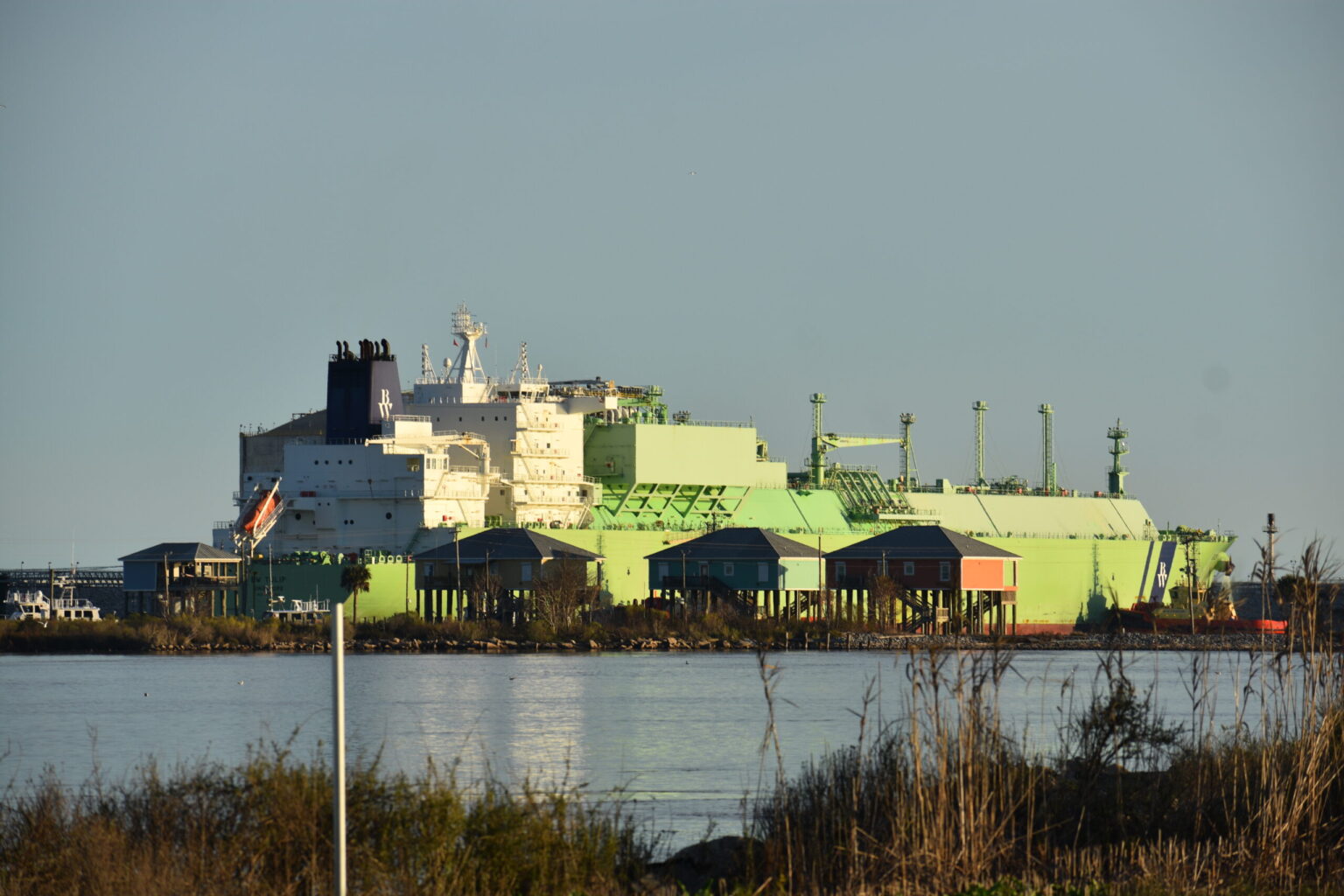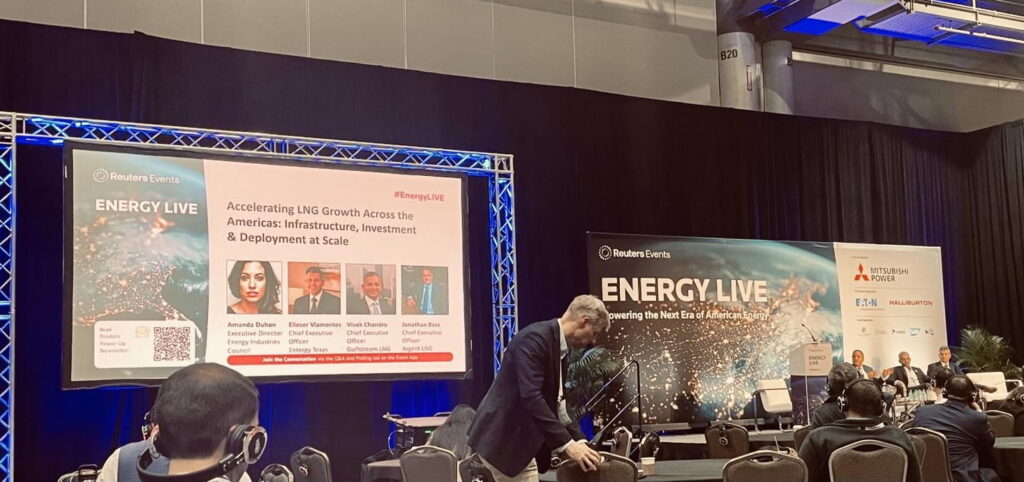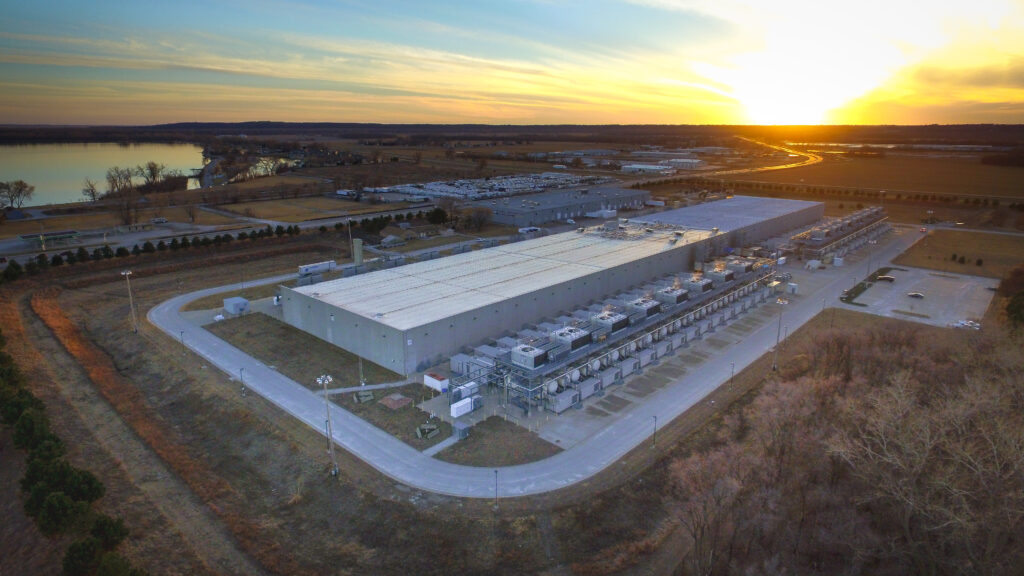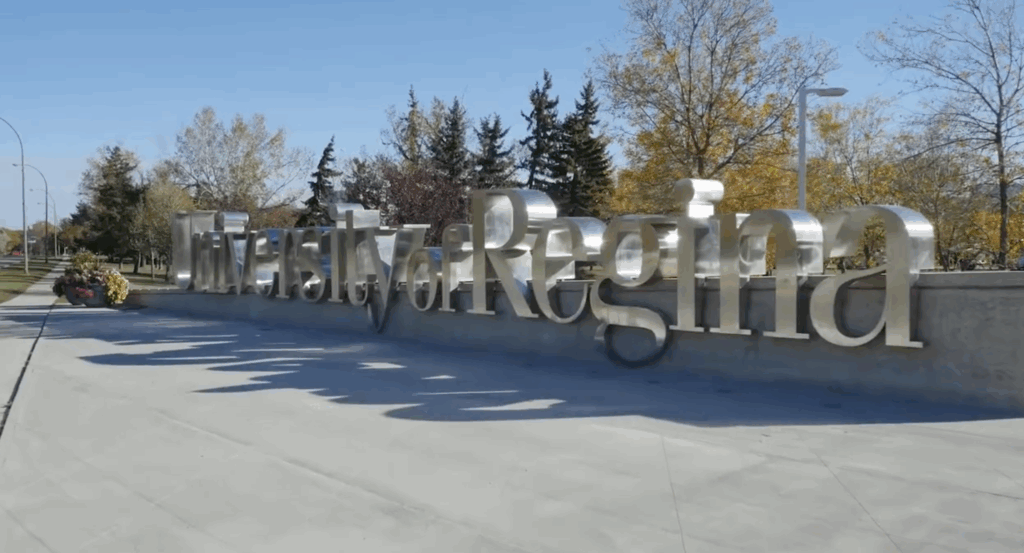This story originally was published on Gas Outlook.
(Cameron, Louisiana) — Phillip Dyson has been a commercial fisherman in Cameron, Louisiana for 49 years. His father fished before him, and his son and grandson also fish, shrimp, and oyster in the brackish waters where the Calcasieu River empties out into the Gulf of Mexico. Even his great-grandson is getting into the family trade.
“Always in Cameron,” Dyson said.
Even in a state famous for its seafood, Cameron once stood out. A few decades ago, Cameron was the largest producer of seafood in the entire country, hauling in hundreds of millions of pounds of fish, shrimp, and oysters each year. But those days are long gone.
Cameron Parish is still home to a dwindling number of commercial fishermen. Two decades ago, there were around 250 commercial fishing vessels in Cameron. “We’re down to about 16 now,” Dyson said.
“The hurricanes hurt us. It wiped the place out. But we always come back and rebuild,” Dyson said. “But, as the ships are getting bigger, every year the [fish catch] is lower, lower, and lower.”
By ships, Dyson is referring to the massive tankers carrying liquefied natural gas (LNG). In just a few short years, the U.S. has emerged as the largest exporter of LNG in the world. Many LNG terminals were built with the aim of shipping the tidal wave of cheap American shale gas overseas, a trend that was supercharged after Russia’s war in Ukraine, which sent global LNG prices skyrocketing.
The U.S. now has eight LNG terminals in operation, another seven under construction, and more than a dozen in various stages of the permitting process. With just a few exceptions, the LNG building boom is concentrated almost entirely in Texas and Louisiana. But the border region between the two states is arguably the most heavily impacted of all — a roughly 60-mile stretch from Port Arthur, Texas to Cameron, Louisiana and then north to Hackberry along Calcasieu Lake.
Commercial fishermen in southwest Louisiana say that the growth of LNG is putting them out of business. They are particularly outraged at Venture Global’s Calcasieu Pass LNG facility, which sits at the mouth of the Calcasieu River on the Gulf of Mexico. The facility has been flaring on and off for the better part of two years, hobbled by persistent equipment malfunctions. Noise and air pollution have made life difficult for nearby residents.
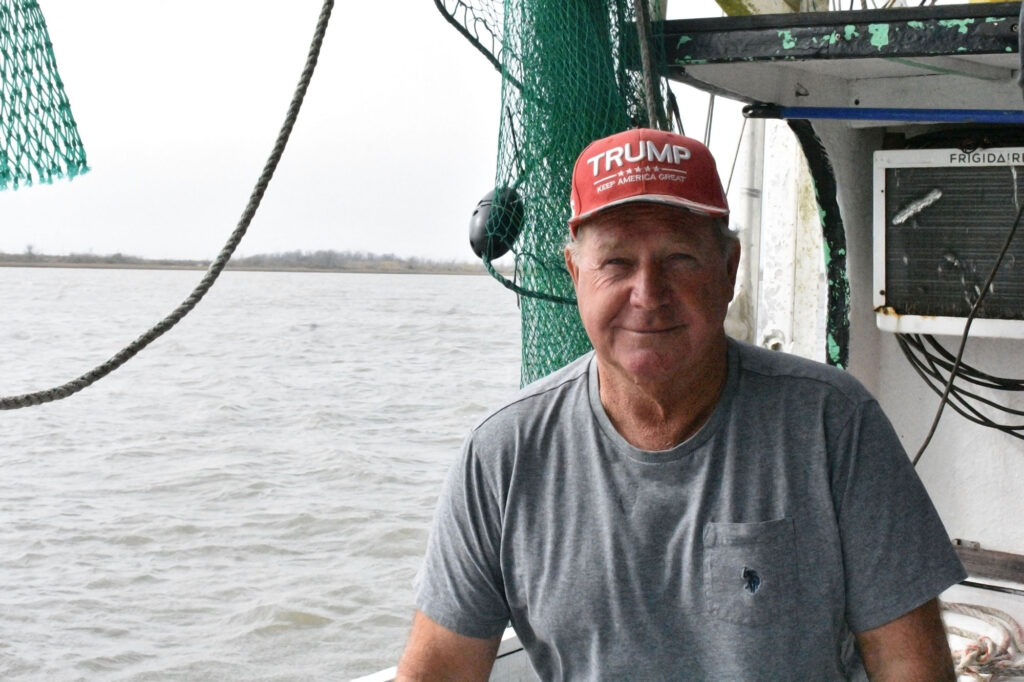
“My wife has been sick for three months,” Dyson said. He too started having respiratory problems, and began using an inhaler. “I get up in the morning, I can’t breathe. Go to bed at night and I can’t breathe.” He doesn’t smoke or drink, and is convinced the pollution from the LNG plant is the cause of his family’s declining health.
The commercial fishing industry in southwest Louisiana is in freefall. While there is a combination of factors, including impacts from hurricanes and competition from cheap seafood imports, Cameron’s fishermen also say that they are being forced out by LNG companies. “They want you gone. They’re just making it harder and harder, trying to push you out,” Dyson said.
When asked what Cameron would look like in five years, Dyson was quick to respond.
“LNG,” he said.
Shrinking Access
The Calcasieu River is more of a ship channel than a natural river, engineered in a straight line to move industrial products to and from the large petrochemical complexes 50 miles north in Lake Charles. Cameron sits at the end of that river, the gateway to the Gulf. That means that it sees a tremendous amount of ship traffic — not only from Calcasieu Pass LNG, but also from Sempra Infrastructure’s Cameron LNG, located about 20 miles upriver, plus ships servicing the sprawling chemical facilities further north.
The LNG tankers are bigger and more disruptive than anything that came before them. They displace so much water, that when they pass by, the water level suddenly drops back down several feet, dragging down dirt and trees along the river banks. “Sometimes when they pass, the trees fall in and they wash all over the place,” Dyson said. The erosion and the silt buildup make it difficult for shrimp larvae, fish eggs and oysters to grow. “Nothing can grow in there. And every year it gets worse.”
Those impacts are compounded by dredging. In order to keep the ship channel deep enough and wide enough to accommodate gigantic LNG tankers, dredging ships routinely scour the river bed and dump the sludge elsewhere, which is also contributing to the decline in fish populations, fishermen say. Studies show that dredging can be lethal to fish and shrimp eggs and larvae.
“There is good evidence to show that dredging can impact eggs and larvae, with larvae being especially sensitive to increased suspended sediment from both dredging and increased erosion,” Amelia Wenger, a senior research fellow at the University of Queensland, Australia, who has studied the impacts of dredging on fish, told Gas Outlook. “Sediment can attach to eggs and larvae and weigh them down, smother them, and for larvae, clog gills.”
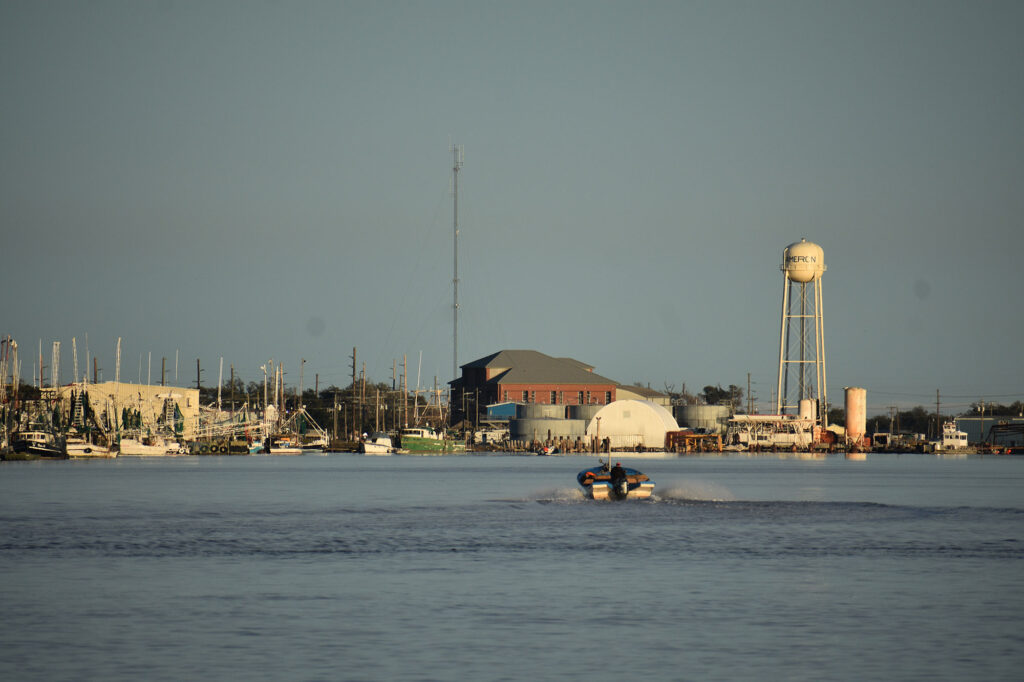
But it isn’t just the environmental impacts. LNG operations are preventing fishermen from doing their work. Fishing boats are not allowed to get near LNG tankers, and must keep their distance. That’s a problem when LNG tankers are passing through the ship channel on a daily basis, severely curtailing the time that fishers and shrimpers can be out on the water.
“As more and more barges are coming and going, it’s just going to be untenable for them to even access the water,” Zachary Norris, a senior attorney at the Niskanen Center, a legal nonprofit based in Washington DC that represents a group of fishermen opposing Venture Global’s CP2 LNG project, told Gas Outlook. “And we’re talking about folks who have been there for generations.”
Perhaps the biggest grievance the fishing community has is that Venture Global has gobbled up and shut down nearly all the boat launches in Cameron. The remaining shrimp boats are confined to one dock at the edge of the ship channel. Fishermen have showed up to local government meetings to complain. Venture Global built a replacement boat launch, but it was too small to handle most commercial fishing boats.
“We used to have boats tied up all along here, all along where the LNG is at. Now we’re all right here,” Travis Dardar told Gas Outlook during an interview on his boat, referring to the multiple boat launches along the Calcasieu River that are now shutdown.
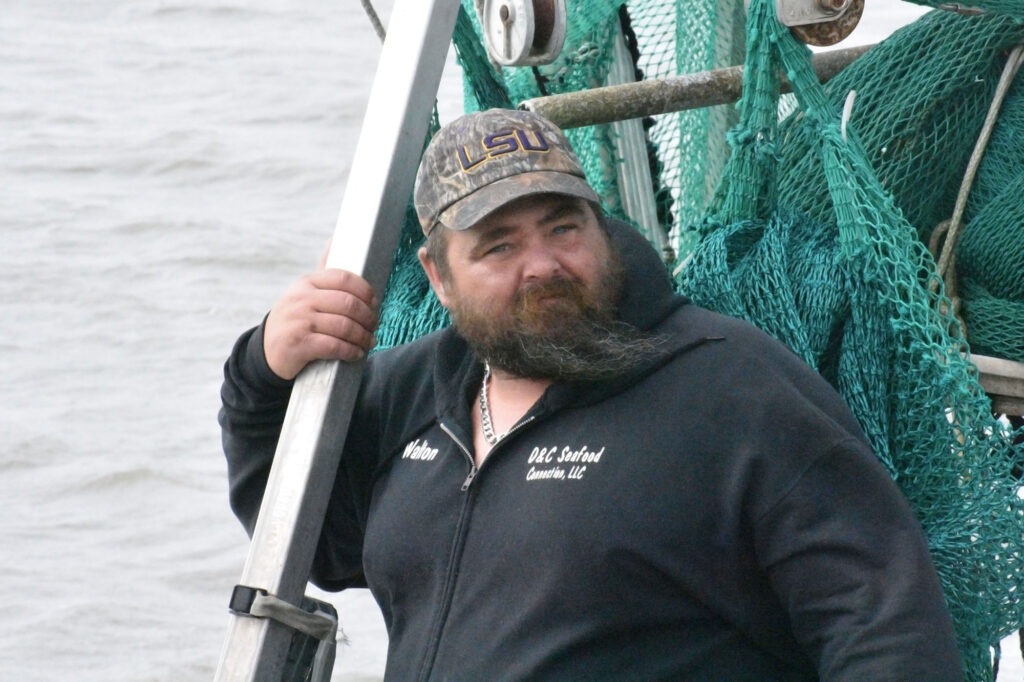
He said they can only lease space at the dock for one year at a time, down from the typical three-year lease. He thinks that is another sign that their days of commercial fishing in Cameron are numbered. Several more LNG projects are on the drawing board, which will likely mean gas companies buying up even more space on the water.
The squeeze on the fishing community from Venture Global’s operations couldn’t come at a worse time. Louisiana fishers and shrimpers are reeling from a flood of cheap imports, which is suppressing prices, they say. The price of shrimp is down to 50 cents per pound, whereas it used to between $3 and $4. “You ain’t buying nothing for 50 cents,” Dyson said. “It takes three dollars to buy a bottle of tea to drink. That’s six pounds of shrimp.”
Dyson said his nephew recently quit commercial fishing because “he couldn’t take the bullshit anymore.” Some fishermen are taking their boats further east to Vermillion Bay because fishing in Cameron is no longer viable.
“Fishermen are down, brother. More down than I’ve ever fucking seen,” Dardar said. “I seen it bad, but I ain’t never seen it this bad.”
Fishermen Organize Against Louisiana LNG
Dardar has become something of a minor celebrity in Cameron, waging a campaign along with other fishermen against Venture Global, a fight that has ballooned into a national movement. A coalition of national environmental groups, teaming up with local communities and Gulf Coast fishermen, forced the LNG issue into the spotlight. They have made Venture Global’s proposed CP2 — which would add another 24 million tonnes of LNG per year, essentially tripling the size of the existing Calcasieu Pass LNG facility — the face of the campaign. Dardar has been a kind of unofficial spokesman for the remaining commercial fishermen in southwest Louisiana, warning that LNG is making life untenable.
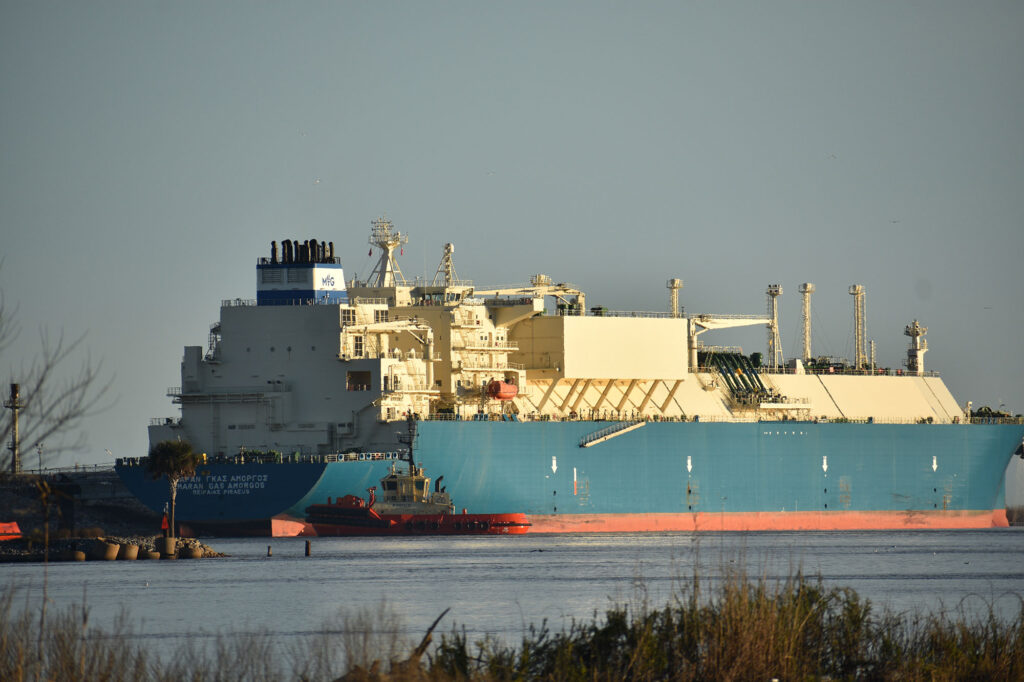
“That CP2 that they’re trying to build, that’s the nail in the coffin right there,” he said.
He set up a non-profit called Fishermen Involved in Sustaining our Heritage (FISH), with the mission of fighting the Louisiana LNG expansion and also providing mutual aid to struggling fishermen.
As Gas Outlook spoke with him on his shrimp boat on a foggy late January day, there was a knock at the door. A man said he needed some money for a boat repair, and heard that FISH was offering help. “Just go to my website, it’s really easy,” Dardar told him.
Dardar’s phone kept ringing. Other media outlets were trying to get a hold of him. A day earlier he had spoken to a group of farmers in another part of the state. A few days before that he appeared at an anti-LNG rally in New Orleans, where fishermen brought their boats to a convention centre and disrupted an oil and gas conference. He met Jane Fonda, who has taken up the fight against LNG. She gave him words of encouragement.
At the time, there were rumours swirling that the White House was about to make an announcement. National environmental groups had planned a protest in front of the Department of Energy in Washington DC, scheduled for early February. Dardar had been afraid of flying, but suddenly found himself on planes to spread the word. And he was determined to go to DC and get arrested if need be.
That turned out not to be necessary. A few days later, the Biden administration issued a pause on permit approvals for new LNG projects, a major win for the campaign against LNG. The pause will delay the permit application for Venture Global’s CP2 project for at least a year, maybe longer. More than a dozen other projects were also impacted by the decision.
Dardar ended up going to DC anyway, but instead of protesting, he appeared at a victory rally headlined by several U.S. Senators. While many in the room celebrated, the decision arguably came too late for fishermen like Dardar.
“I thank you all for this pause, but at the same time, Calcasieu Pass 1 LNG is still taking docks, destroying estuaries, and killing shrimp and oysters,” he said at the event. “We’ve paid a hell of a price, with our lives. I think that’s enough.”
“The fishing has dropped about 50 percent since this thing’s been going,” he told Gas Outlook, referring to Calcasieu Pass LNG. “They need to compensate every fisherman, not for CP2 and not for what they want to do, but for the damages that they’ve done. Because the damage is done.”
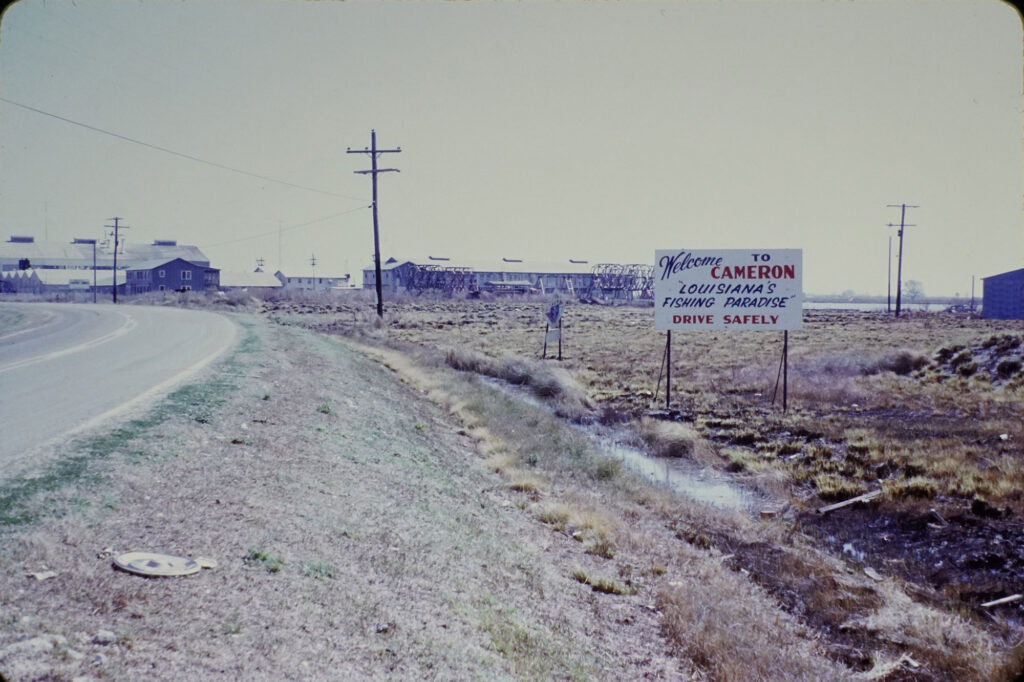
Precise data on fish catches in Cameron is difficult to access. Gas Outlook requested data from the Louisiana Department of Wildlife and Fisheries, which provided data on oyster populations. That showed a precipitous drop in oyster stocks in Calcasieu Lake over the past 15 years, although the decline began before Venture Global’s plant started operations. Data on shrimp and crab stocks was not available at a local level. Numbers on the volume of shrimp and oysters that was actually harvested is considered confidential and is not publicly available, a spokesman for the department told Gas Outlook.
But the Niskanen Center says that the Louisiana LNG industry is pushing commercial fishing in the southwest of the state to the brink of extinction.
“The expectation of the fisher folks on the ground is that with this second facility [CP2], that they’re just done. Between the access issues and the impact to the fish stocks and the distribution of shrimp and oysters in the area, it’ll just put them completely out of business,” Norris said.
“This has been a fishing and shrimping based economy. As recently as a generation ago, Cameron Parish was one of the biggest fishing and shrimping markets in the world,” he added. “And now we’re looking at the complete annihilation of an industry.”
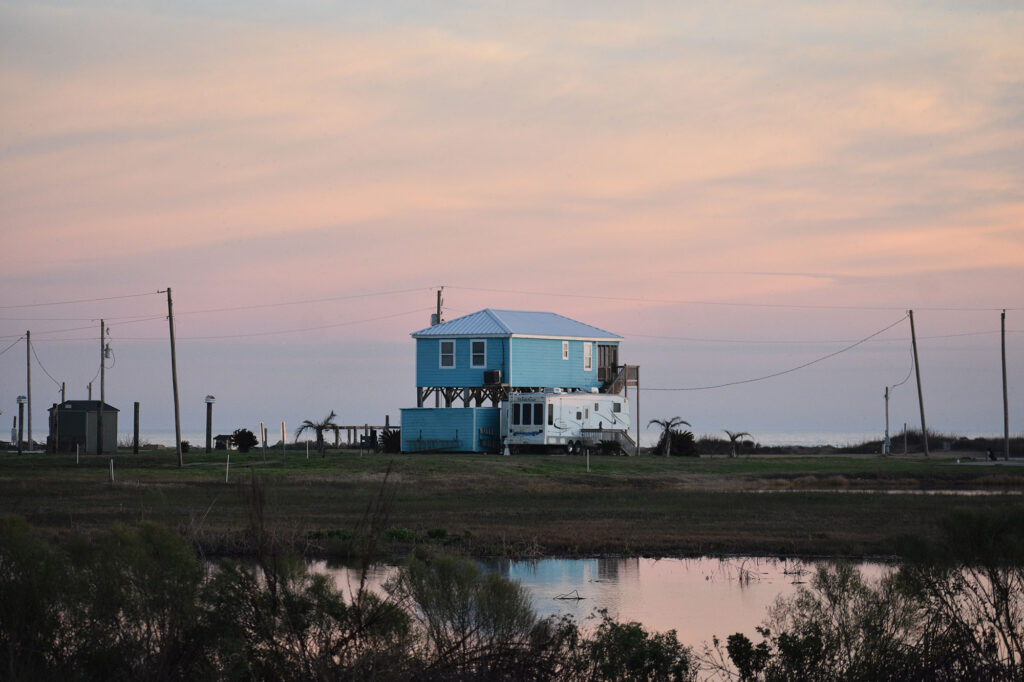
It is precisely against this bleak backdrop that Venture Global and its backers say Louisiana LNG is needed. The existing Calcasieu Pass facility and its sequel, CP2, will bring jobs and investment in a place that lacks both. And given the region’s concentration of heavy industry, to some, the LNG buildout is consistent with its economic history. At public hearings, there is certainly some support in Cameron Parish for more LNG.
But the economic benefits may be overstated, not least because the state of Louisiana is handing out enormous tax exemptions. Venture Global received tax exemptions for Calcasieu Pass valued at more than $184 million, a figure that only accounts for its first year of operations. As the Louisiana Illuminator noted, the state board that approved the tax break did so “without much discussion.” The company is also building a separate LNG facility in southeast Louisiana, called Plaquemines LNG. For that project, Venture Global is receiving $834 million in tax exemptions, according to The Lens.
The tax benefits offered by Louisiana come even as Venture Global is posting enormous profits. Between the start of operations at Calcasieu Pass in early 2022 through the end of 2024, gas shipments will have earned the company around $17.5 billion.
Like many oil and gas facilities, Calcasieu Pass is heavy on capital, but light on employment. The plant only created 240 permanent jobs. CP2 is expected to create 260 jobs. Many workers drive from in Lake Charles or Port Arthur, and don’t live in Cameron. In its final environmental impact statement for CP2, the U.S. Federal Energy Regulatory Commission (FERC) noted the increased jobs to conclude that the project was economically beneficial, but did not assess the lost jobs in commercial fishing. Likewise, FERC acknowledged the environmental harms to shrimp and fish populations, but said those impacts would not be significant.
That process is organized to benefit the industry, says James Hiatt, a former oil refinery worker and founder of For a Better Bayou, a Louisiana-based NGO that is campaigning against LNG and speaking up for commercial fishermen.
“If all we do is checking boxes — well, they checked all the boxes,” Hiatt said. “But people are not boxes.”
“Fishing is hard work. And that’s what they want to do. This is what they love,” he said. “And it used to be sustainable. You used to be able to make a living and have a life.”
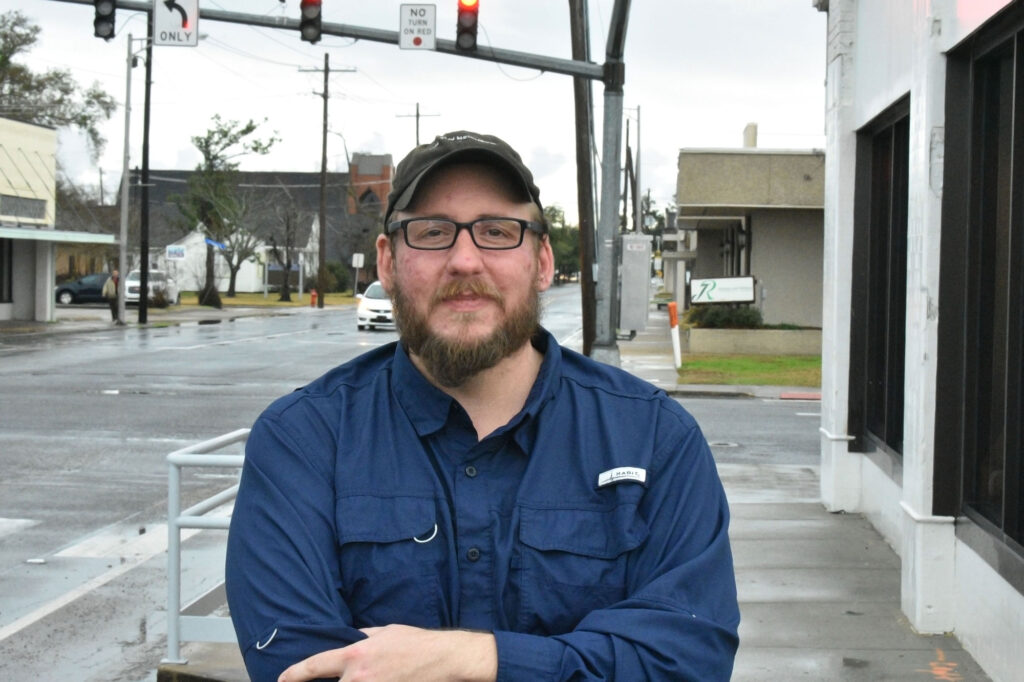
Venture Global did not respond to email and phone inquiries from Gas Outlook.
Cameron Parish Police Juror Magnus “Sonny” McGee, who represents the district that hosts Calcasieu Pass LNG, also did not respond to questions.
Displaced Again
Living in the shadow of Calcasieu Pass, Dardar and his wife began having health problems. Constant flaring at the LNG site made life in Cameron unbearable. It “seemed like at times you’d wake up gasping for air over here,” he said. Last year, Dardar moved his family two hours away to the town of Kaplan. “You wouldn’t believe the difference in the way we breathe,” he said.
He still makes the drive down to Cameron to fish, and he sleeps on his boat for several days at a time before returning home.
He is still trying to keep his fishing business afloat in Cameron, but doesn’t know how much longer he can hold on. Still, he is motivated by fighting to protect the livelihoods of fishermen and “standing in the fire with them,” as he put it.
It was not the first time Dardar was forced to move away. He is originally from an Indigenous community in Isle de Jean Charles, in southeast Louisiana.
“When I was growing up a kid it was a paradise. Beautiful place. If you wanted something to eat, you just walk out your front door,” he said. But Isle de Jean Charles is rapidly eroding into the Gulf of Mexico, battered by hurricanes and rising sea levels. In 2016, the U.S. government provided federal funding to relocate residents because of sea level rise, which made it the first case of organized climate migration.
Dardar was raised by his grandparents, but after they died, he decided it was time to move. “I watched that place disappear,” he said.
He brought his oyster boat to Cameron about eight years ago and the fishing was excellent. “Back then, by 8:30 in the morning, our day was made. We were waiting for the bank to open,” he said.
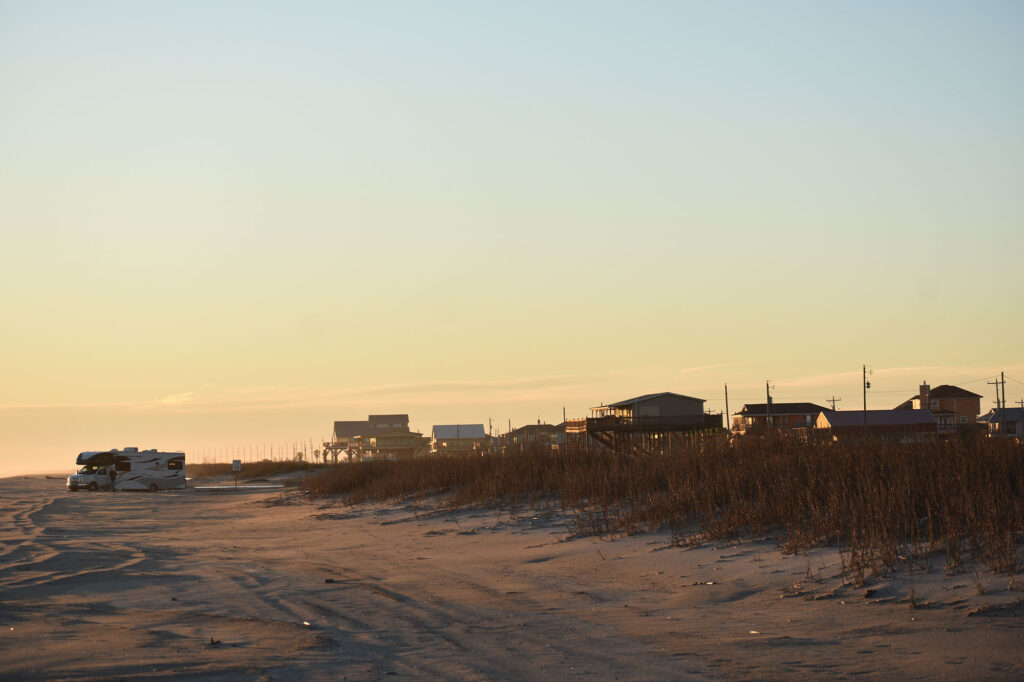
But after Calcasieu Pass LNG began operations, things started to decline pretty quickly. He said LNG and fishing are completely incompatible.
“They sacrificed one industry for another. They sacrificed our commercial fishing industry for the petrochemical industry. And that’s bullshit,” he said. “We didn’t want this LNG to start with. We was just fine without it.”
Subscribe to our newsletter
Stay up to date with DeSmog news and alerts


